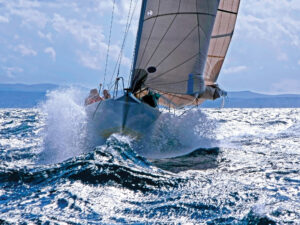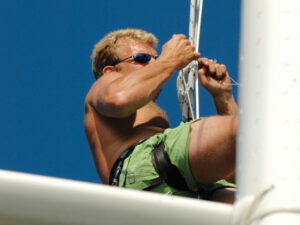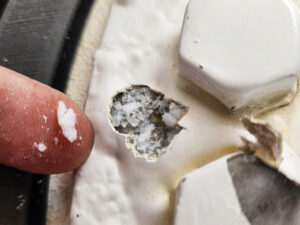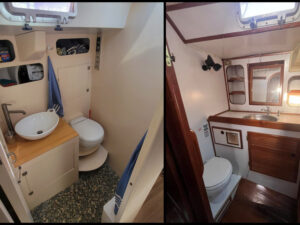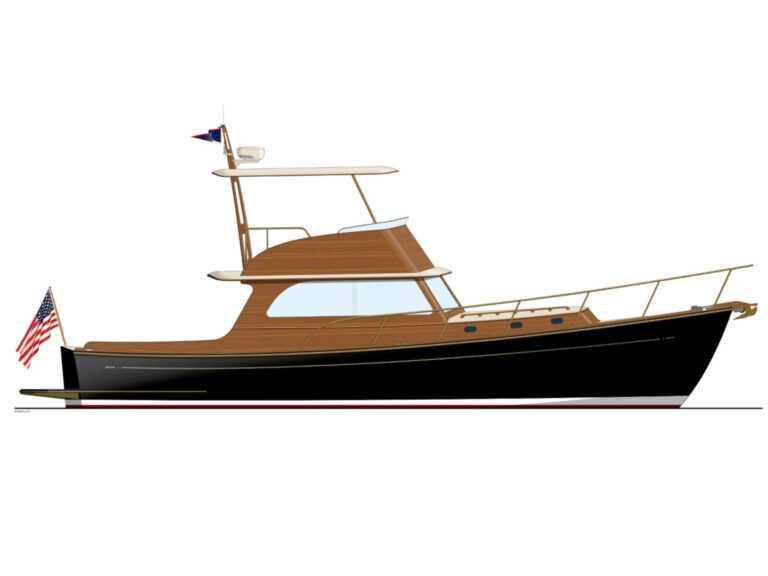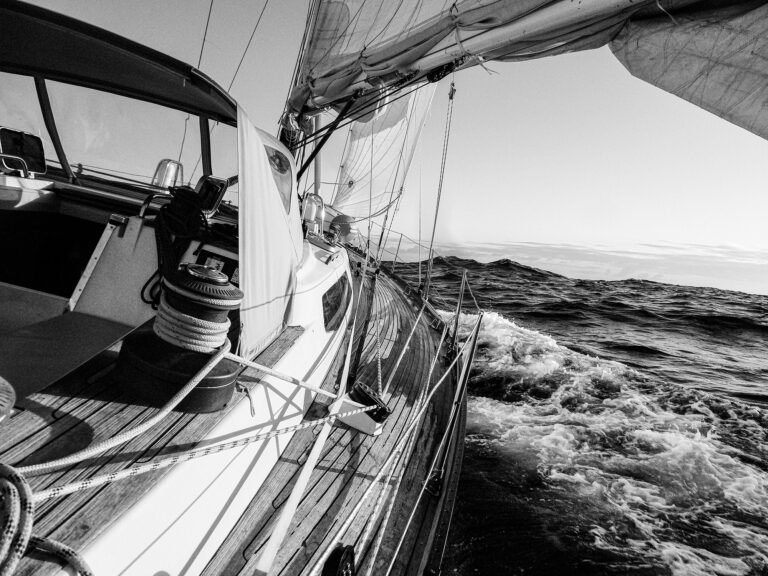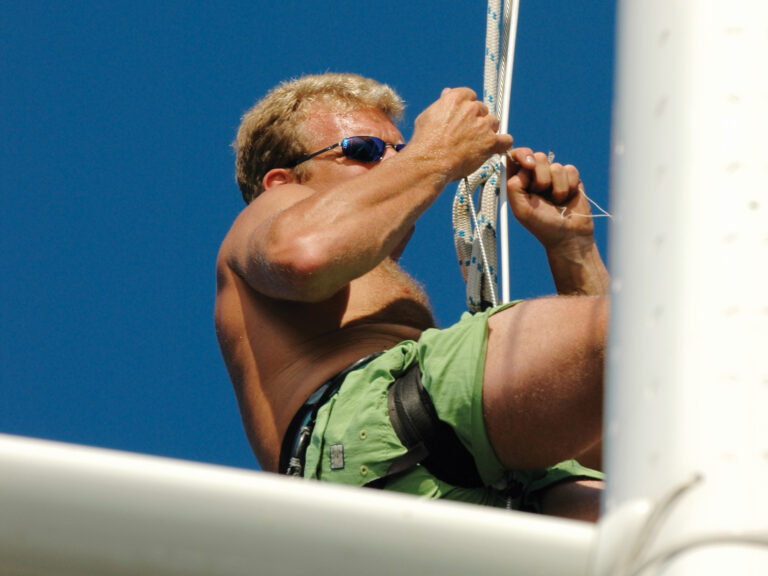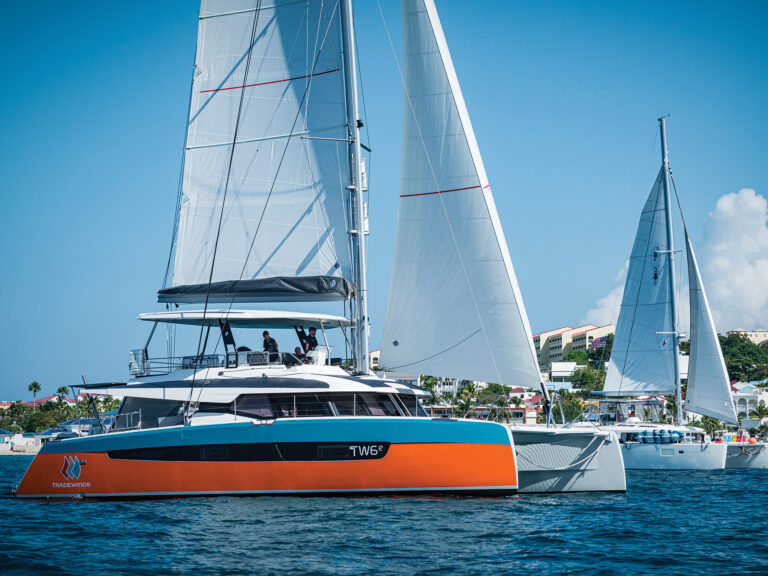Its been a collage of intense experiences over our few weeks back home. Newport is a beautiful town in early fall; the air is crisp and clear. The kids are back in school, and the chaos of summer tourists has subsided. The roadside stands brim with just-harvested autumn apples and everyone seems to be making pies and cider. As I walked around town, usually pushing our 18-month-old niece Hannah in her stroller, outwardly not too much seems to have changed. I noticed the same specials on the same blackboards that were there a year ago, and that made me smile.
Over at the local gas station on Washington Square, Mr. Coffey was still dispensing gas and solid wisdom to the locals. At Del Neros dry cleaners, Hilda, the adored 90-something black woman whos worked behind the counter forever and pretty much runs the joint, was still twinkling and giving everyone a hard time. I dont have any dry cleaning anymore, but I poked my head in to say hello. Hilda and Mr. Coffey remain two of my touchstones in Newport, where everyones lives are hurtling forward, just as mine is. We came home to all kinds of changes in our friends lives: pending adoptions, new businesses, tragic automobile accidents, big promotions, cancer, graduations, births, deaths.
When we wanted to hang out with our friends, Douglas and I liked to meet at Celtica, my brother Mark’s brand-new Irish pub on Long Wharf. When I craved some girl talk, an oasis in the melee, I stopped by for tea with my friend, Michelle. I took my Little Sister Kelli horseback riding for her birthday — an annual tradition; we discussed life in junior high school, and I felt a pang that I’m not there for her first year. I hopped on a train to New York with my friend Heather and saw The Seagull; sitting in Central Park, watching Meryl Streep and Kevin Kline made me feel about as far away from Ithaka as I have in a year.
Douglas and I cooked seafood dinners with my parents, reminisced, and continued the fruitless effort to reassure my dad that we’re not crazy. As time went on, we found ourselves telling the same stories and answering the same questions about our cruising life to our families and friends. We got a few anecdotes down cold, and could tell them like comfortable old George Burns and Gracie Allen vaudeville routines. When folks pushed to know what we’re going to do with ourselves when we eventually “get back to the real world,” we told them “we have no earthly idea,” and this rattled them. So we often ended up shrugging, saying we’ll probably go back to doing exactly what we did before, and letting the conversation continue without a hiccup. Alone at night, we talked about how nice it will be to get back to our life on Ithaka.
While we were home, we were invited to speak at the Catalina Rendezvous in Newport, and there we found lots of kindred spirits. Everyone in the audience owned boats. Many people said they, too, had plans to go cruising, and they were thirsty for useful scoop. Inspired by their enthusiasm, we ended our talk by telling them some of the lessons wed learned over the past year, ideas we wish cruising friends had told us before we set off. Here are a few
Some things we wish wed done a bit differently before we went cruising:
- We should have installed more alternative energy sources, either a wind generator or more solar panels or both. We have a 12-volt refrigerator, and we use fans and the computer quite a bit, so the extra energy generation would have been helpfulnot crucial, but nice.
- We definitely got the wrong dinghy: a folding floor affair. It stores wonderfully, but, wow, the hard-bottom jobs plane better, beach more safely (no punctures on coral), splash less, and keep groceries and passengers a whole lot dryer on choppy trips to shore. While at home we picked up wings (hydrofoil stabilizers) for the dinghy outboard, which lots of cruisers use to help their dinghies plane better.
- We wish we had a bigger autopilot. For all the day-sailing we do, and tricky maneuvering around reefs, we often end up using it more than we do the wind vane. I know thats a travesty, but its just the reality down here.
- We wish we had all of our instruments displayed in the cockpit. We just bought a new Ray Marine SL72 radar here in Newportour old one (different brand) finally conked outand were definitely putting a mount in the cockpit for the new display so that we can move it there when were making passages. When were not, the display will live at the nav station down below, so we can use it to keep track of our anchoring position vis-a-vis the nearest island during hairy, black-as-coal nights when the wind picks up to 30+ knots (deserted islands give you no lights for bearings).
- Speaking of instruments, we wish wed installed a second depth sounder before we left the States. When youre scooting among reefs, this is the most critical electronic device on the boat. We just bought a new unit that well install when we haul next time. Yes, we have a lead line as a backup, but among reefs, depths change radically in seconds, and the lead line is best used in the dinghy as an advance scouting party.
- We wish one of us had gotten a ham license before we left. Unlike SSB (single-sideband) radios, for which the FCC automatically grants operator permits, Hams, who have to pass a test, then get to use additional frequencies, some of which have terrific weather data that can be downloaded any time, day or night, plus free e-mail services. In the States, the dreaded Morse code requirements for a ham license have been relaxed considerably. Radio Shack has good tapes and study guides for the test.
- Odds and ends that we’ve picked up in Newport and are carrying back to Ithaka include a tenderizing mallet for conch, a fish scale for weighing our propane tanks (to determine exactly how much gas is left), extra snorkeling gear (your mask will leak, and you’ll want a spare), shorty wetsuits, and a spear gun.
- We wished we had more fans, and once back on board, we will be sure to add strong fans to cool every place you usually sit/sleep/cook; we’ve just bought two more Guest oscillating fans. One, we’ll install to cool the galley; the other we’ll keep as a spare for the main saloon. All fans die, and those that linger into old age just get so noisy they drive you nuts. The fans that get the most use are the ones aimed at the nav station, the main saloon, and the one in our forward cabin. Only one or two will be on at any one time, but in the Rio jungle, having fans in each of the key spots makes all the difference in the world—an easy upgrade.
Things weve learned in the year weve been out cruising:
- Communications with our families at home is critical to keep peace of mind, especially for our parents. We have a Globalstar satellite phone on Ithaka (that we use judiciously, as the per-minute cost adds up fast), and a super-reliable Trimble Inmarsat C for onboard e-mail. We don’t call home much, but it’s great to know we can. For regular e-mail we use the internet cafes, which in the western Caribbean are easy to find (excepting Cuba, where we had to use Pocketmail).
- We learned that the ICW is pretty but SLOW, and that everything with cruising takes a lot longer than we thought. So, now we just go with it. We no longer lock ourselves to any tight schedules to be anywhere, figuring if we like an anchorage we should stay there as long as it’s really fun. At the Glover Reef atoll, for example, we didn’t budge our anchor for three weeks. Plans are made now only to be changed.
- We’ve learned that we, and every other cruiser we’ve met, motor a lot more than we want or expected. Some cruisers say they end up motoring 60 percent of the time—a staggering amount. So, if you need to re-power, get the biggest engine your boat can handle. You won’t regret it when you’re in a 50-knot squall trying to avoid reefs or a lee shore, or when you’re logging pokey days down the ICW.
- Don’t over-provision before you leave the States. It will unnecessarily lower your water line when there are great supermarkets throughout the NW Caribbean. (We gave a ton of canned goods we hadn’t used to charitable organizations in the Rio.)
- Bring the gourmet goodies and spices you love to enjoy as well as better-quality dried soups and many boxes of good, hard, whole-grain crackers to last you until you reach a major city—these are all items that are hard to find (As are some favorite feminine hygiene products, so stock up before you go.).
- We learned that the first year of cruising is more challenging emotionally and technically than we expected, but that it gets exponentially better and better as time goes by. We’re grateful to be able to stay out more than one year to reap these rewards.
Advice for our friends who are counting down the months before their departure for the cruising life:
- Get a big headsail; before we left, we bought a furling 135 percent Genoa to replace our traditional Yankee, use it all the time, and love it. The boat flies, especially downwind! Yet, when we want to revert to our cutter configuration, we just furl the genny down to a smaller size, and raise our staysail. Presto, options.
Make sure you have the biggest ground tackle you can manage and lots of chain. Our CQR was the right size, but we replaced our smaller Bruce with a larger one. And we added more chain.
Advertisement
- Make sure you have built-in ways to catch rain water from your awnings or deck, even if you have a watermaker. If you do rely on a watermaker, we noticed that lots of experienced cruisers no longer pipe their fresh RO (reverse osmosis) water directly into their main tank. Having fouled their tanks with sewage, salt, jellyfish spores or whatever that damaged their watermakers membrane, they now collect the RO water in five-gallon jugs, taste test, and then transfer that water by hand into their main water tank. Time consuming? A bit, yes, but safer. Remember, regardless of a systems quality, if its mechanical, at some least opportune time it will mess up.
- Having a big bed with adequate ventilation and a good fan is important; weve met a lot of cruising couples who sleep separately just to stay cool because their V-berth is a little too skimpy. Before you buy the boat, both of you should get into the master-cabin berth, assume your normal sleeping positions, then imagine that its 95 degrees.
- Excellent storage is critical on a cruising boat; Ithaka has many cavernous lockers, far better than most boats in this regard, and even so we’d like more storage space. We’ve met lots of cruisers whose life’s goods seemed to be strapped on deck because they don’t have deep deck lockers. This can prove pretty hazardous in heavy weather.
- Get spares for everything—alternator, autopilot, starter. Everything you can think of. Corrosion is a killer, and stuff wears out fast when you use it every day in a salty, wet, hot environment. Getting replacement parts when you’re out on the back of the beyond is a nightmare. We’ve seen many boats waiting unhappily for parts for weeks on end. One moral is this: Fewer systems plus fewer parts equal less waiting.
- Have meaningful work; seriously study the language, the politics, and history of the countries you visit; pursue a craft or hobby such as music, photography, art; educate your children aboard; give your time by volunteering—these are just a few of the activities we’ve noticed that seem to give an unparalleled dimension to the lives of cruisers.
Think about this before you go, and bring the necessary tools with you to explore a passion. (Otherwise, as one of our cruising friends commented, “You can go a little ‘tropo’ out here!”) For volunteering opportunities, just get on the local VHF or SSB cruisers net when you arrive in a place; other cruisers can always steer you toward projects—a great way to meet lots of local people and learn firsthand about the culture surrounding you.
Hurricane season is drawing to a close, and Douglas and I are packing our bags and boxes, and heading back to Guatemala this week. We got done what we got done, saw as many of our friends as we could, hung out with our families as though wed never been awayand shared in the grief of an American tragedy that, in so many ways, defined our trip home. Now, all thats left is to say good-byealways the toughest thing to do when youre cruising, and yet somehow you seem to be doing it all the time.

